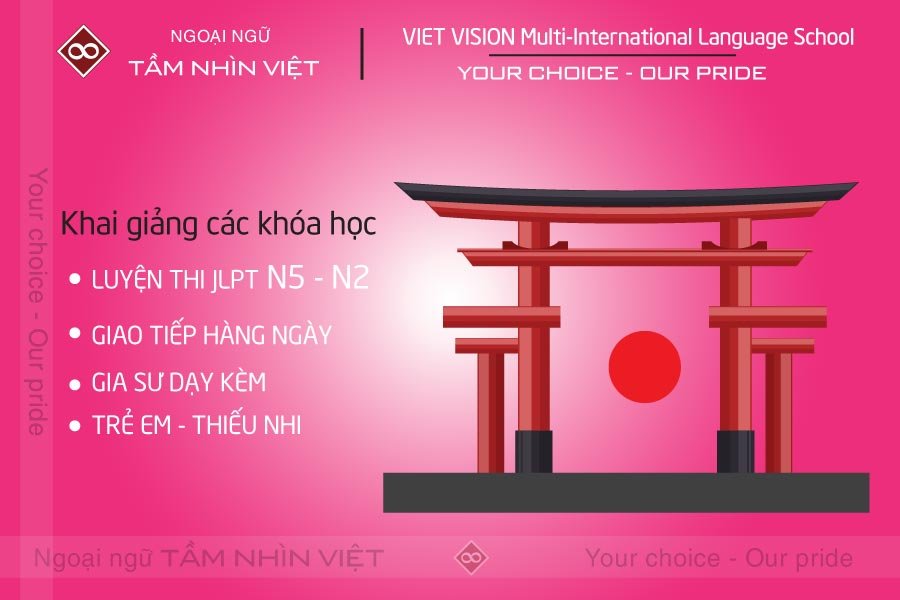Các bạn học ngữ pháp JLPT N3 tiếng Nhật sẽ cần hệ thống đầy đủ và chuyên sâu kiến thức trước kỳ thi để đạt điểm cao.
Hôm nay, chúng ta sẽ đi đến Bài 66 – Ngữ pháp JLPT N3 – というより (to iu yori)
Trong bài sẽ có nhiều câu ví dụ cho phần ngữ pháp để bạn có thể hiểu rõ hơn và dễ dàng tiếp thu hơn. Tuy nhiên, một điều lưu ý là bài học được thiết kế dành cho các bạn có nền tảng kiến thức tiếng Anh tốt. Nếu bạn nào không tự tin, có thể sử dụng ứng dụng Google Translate để dịch thành tiếng Việt nhé!
- Có thể bạn quan tâm: Khóa học tiếng Nhật theo yêu cầu (dạy kèm tại nhà hoặc trung tâm)

1. Giải thích ngữ pháp JLPT N3 – というより (to iu yori)
Meaning: Rather than
Formation:
Verb-casual + というより(は)
Noun + というより(は)
いadj + というより(は)
なadj + というより(は)
Phrase + というより + Phrase
2. Các câu ví dụ thông dụng nhất
今日は涼しいというより寒いくらいだった。
It was cold rather than cool today.
Kyou wa suzushii to iu yori samui kurai datta.
水は冷たく、氷水というより、両足の肌をジリジリ焼く火のように感じられた。
The water was so cold that i felt the skin on my legs searing as though this were fire, not icy water.
Mizu wa tsumetaku, koorimizu to iu yori, ryouashi no hada o jirijiri yaku hi no you ni kanjirarerta.
この部屋は、部屋というより、むしろ地下牢のようだ。
This room looks more like a dungeon.
Kono heya wa, heya to iu yori, mushiro chikarou no you da.
本当にそうだと確信しているというよりは、そうあって欲しいと思っていた。
I was wishing rather than believing it to be true.
Hontou ni sou da to kakushin shiteiru to iu yori wa, sou atte hoshii to omotteita.
前の車は遅すぎて、走るというよりはっているようだ。
The car in front is moving more than slowly. it’s crawling.
Mae no kuruma wa ososugite, hashiru to iu yori hatteiru you da.
その音は、人というより動物のようだった。
That sounded like an animal, not a person.
Sono oto wa , hito to iu yori doubutsu no you datta.
あの学生はできないというより、やる気がないのでしょう。
Rather than not being able to đơ it, that student just doesn’t want to try.
Ano gakusei wa dekinai to iu yori, yaru ki ga nai no deshou.
科学というより魔術みたいに聞こえるな。
Sounds more like magic than science.
Kagaku to iu yori majutsu mitai ni kikoeru na.
彼は将軍というより会計士に見えた。
He looked more like an accountant than a general.
Kare wa shougun to iu yori kaikeishi ni mieta.
敢助はただながめるというより、むしろ研究するといったふうな注意深い眼つきで庭をながめた。
Kansuke scrutinized the garden with that attentive gaze which studies rather than looks.
Kansuke wa tada nagameru to iu yori, mushiro kenkyuu suru to itta fuu na chuuibukai metsuki de niwa o nagameta.
今はもうすべてが静まり、とうとう彼も体の向きを変えて、ふたたび眠り込んでしまった。というより、記憶に残らない別の夢の中にさ迷いこんでいった。
All was now silent, and at last he turned and fell asleep again or wandered into some other unremembered dream.
Ima wa mou subete ga shizumari, toutou kare mo karada no muki o kaete, futatabi nemurikonde shimatta. to iu yori, kioku ni nokoranai betsu no yume no naka ni samayoikonde itta.
父はこの国と恋に落ちたんです。今や、イングランド人というより、日本人的だと思います、本当のところ。
My father fell in love with this country. i think he’s more japanese than english now, to be honest.
Chichi wa kono kuni to koi ni ochitan desu. imaya, ingurandojin to iu yori, nihonjinteki da to omoimasu, hontou no tokoro.
いったいどうやって彼らに、自分がもうまもなく、というよりすぐに別れを告げていかなければならないことを打ち明けたらいいのか、改めて心が迷うのでした。
I wondered again how i was going to break the news to them that i must leave them so soon, indeed at once.
Ittai dou yatte karera ni, jibun ga mou mamonaku, to iu yori sugu ni wakare o tsugete ikanakereba nanarai koto o uchiaketara ii no ka, aratamete kokoro ga mayou no deshita.
そこで私たちは、人々が唖然として自分たちを見たのは、自分たちが戻ってきたのを見て驚いたというよりは、自分たちのいでたちに驚いたのだということに突然思い至りました。
Then we suddenly realized that people had looked at us with amazement not out of surprise at our return but in wonder at our gear.
Soko de watashitachi wa, hitobito ga azen toshite jibuntachi o mita no wa, jibuntachi ga modotte kita no o mite odoroita to iu yori wa, jibuntachi no idetachi ni odoroita no da to iu koto ni totsuzen omoiitarimashita.
ここは地下二階というより、階段と直角に交わる狭隘な通路にすぎない。
The subbasement is less of a basement than it is an ultra-narrow corridor that runs perpendicular to the stairs.
Koko wa chika’nikai to iu yori, kaidan to chokkaku ni majiwaru kyouai na tsuuro ni suginai.
私は怒って相手をなじるというより、もっぱらこちらがいかに傷ついたかを訴えた。
My tone was more hurt than outraged or angry.
Watashi wa okotte aite o najiru to iu yori, moppara kochira ga ikani kizutsuita ka o uttaeta.
彼はとうとう飽き飽きしちゃったんだよ。が、自分の塔に飽きたというよりも、私の声に飽きたんだな。
He was very weary at last, but not so weary of his tower as he was weary of my voice.
Kare wa toutou akiaki shichattan da yo. ga, jibun no tou ni akita to iu yori mo, watashi no koe ni akitan da na.
彼女は、子どもに話しかけるときの口調というよりも、おとなの喧嘩相手に話しかけるような口調でいった。
She spoke rather in the tone in which a person might address an opponent of adult age than to a child.
Kanojo wa, kodomo ni hanashikakeru toki no kuchou to iu yori mo, otona no kenka aite ni hanashikakeru you na kuchou de itta.
Kết thúc bài học
Như vậy, chúng ta đã kết thúc Bài 66 – Ngữ pháp JLPT N3 – というより (to iu yori)
Hãy tiếp tục theo dõi các bài học ngữ pháp JLTP N3 tiếp theo tại đây: Tổng hợp các bài học ngữ pháp tiếng Nhật JLPT N3
BONUS: Các bạn có thể bổ sung thông tin quan trọng trong kỳ thi JLPT 2020 “TẠI ĐÂY”
Cảm ơn bạn đã quan tâm và theo dõi bài học!
